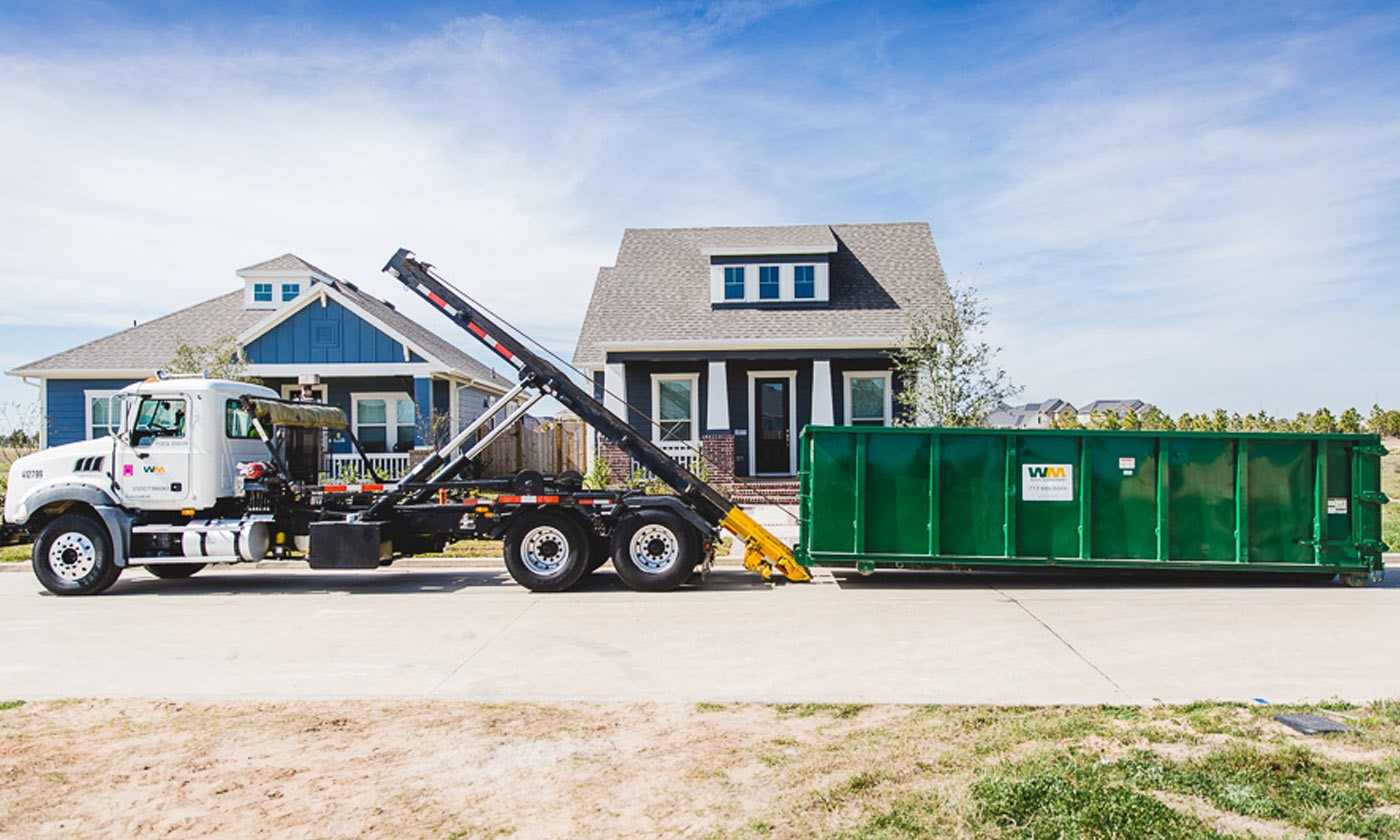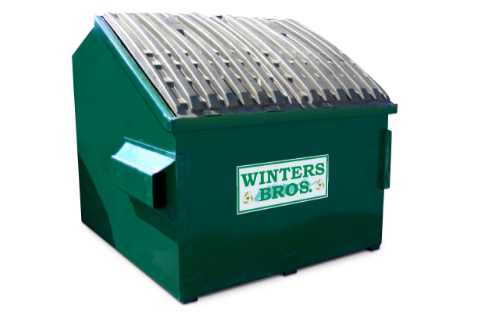Achieving a successful dumpster rental experience requires a thoughtful technique. Beginning by establishing clear project goals, establishing your dumpster needs, and researching local companies Contrast prices, choose the ideal size, and plan for shipment logistics. Assurance compliance with neighborhood policies and prepare the drop-off site. Effective waste management is key, including partition, filling strategies, and timely pick-ups. Testimonial and wrap up the rental agreement to avoid misconceptions. By following these important steps, you'll be well on your way to a seamless dumpster rental experience; and with a much deeper understanding of the procedure, you'll be able to browse also one of the most complex projects with confidence.
Set Clear Project Goals
What specific objectives do you intend to attain with your task? Developing clear goals is important to an effective dumpster rental experience.
Define the scope of your project, including the type of waste you'll be producing, the period of the rental period, and the required dumpster dimension. Take into consideration the purpose of the rental, whether it's for a home remodelling, building job, or unique occasion. This quality will aid you figure out the essential sources, consisting of the number of dumpsters and regularity of waste collection.
Having clear objectives likewise enables you to establish sensible timelines and budget plans. You'll have the ability to allocate sources more effectively, making sure that your job remains on track.
Additionally, clear objectives help with effective communication with your dumpster rental carrier, making sure that they comprehend your needs and can provide the needed assistance. By setting certain objectives, you'll be much better furnished to handle your job's waste management needs, leading to an extra effective and stress-free experience.
Determine Your Dumpster Needs
How much area will you require to suit the waste generated by your project? Determining your dumpster needs is an essential step in the rental process.

Start by estimating the volume of waste you'll produce. Consider the kind of job, the products involved, and the variety of individuals working on the website. This will assist you pick the right dumpster size Common sizes variety from 10 to 40 cubic yards, with 20 and 30-yard dumpsters being the most popular.
Think concerning the weight of the waste as well. Heavy materials like concrete or asphalt may need a larger dumpster, while lighter materials like drywall or roof covering shingles can be suited by a smaller one.
Additionally, consider any type of specific requirements, such as a dumpster with a locking lid or one that's licensed for harmful products. By properly examining your dumpster requires, you can assure a smooth and effective waste monitoring process, conserving you money and time in the lengthy run.
Research Local Dumpster Companies
Once you have determined your dumpster needs, the following action is to research local dumpster companies that can supply the best devices for your project. This involves determining business that operate in your area and provide the kind of dumpsters you need.
You can begin by browsing online for dumpster rental business in your city or area. Check their web sites, checked out reviews, and request for recommendations from pals, family, or colleagues who have made use of dumpster rental solutions prior to. Make a checklist of prospective business that meet your requirements.

When investigating neighborhood dumpster firms, consider elements such as their track record, experience, and series of solutions supplied. Seek companies that are licensed, insured, and certified to operate in your area.
Also, check if they have a large range of dumpster sizes and kinds to pick from, as well as adaptable leasing periods and hassle-free distribution options. By doing your research study, you can locate a reliable and trustworthy dumpster rental business that satisfies your certain requirements and budget.
Compare Dumpster Rental Prices
Several elements contribute to the overall cost of dumpster rental, and understanding these variables is vital to comparing costs effectively.
These variables consist of the kind and size of the dumpster, rental duration, weight capacity, and any kind of additional solutions such as delivery, pickup, and disposal fees Additionally, place, fuel rates, and local laws likewise influence the last cost.
When contrasting rates, it is essential to take these variables right into account and guarantee you're contrasting apples to apples.
Be cautious of companies that price estimate low cost yet charge extra for services like delivery or disposal. Rather, search for firms that supply transparent pricing, consisting of all the necessary services.
Additionally, inquire about any discounts or promotions that might be available, such as package bargains or loyalty discounts.
Choose the Right Dumpster Size
Selecting the ideal dumpster size is a vital element of the rental process, as it directly impacts the general efficiency and cost-effectiveness of the task. A dumpster that is too little can result in several journeys to the garbage dump, causing enhanced prices and prolonged project timelines
On the various other hand, a dumpster that is also huge can be a waste of resources and may not fit in the designated space.
To choose the ideal dumpster size, consider the range of your project and the amount of waste you anticipate to produce. Action the area where the dumpster will certainly be put to guarantee it fits comfortably.
Typical dumpster sizes range https://piedmonttriaddumpsters-74.mystrikingly.com/ from 10 to 40 cubic yards, with the most common sizes being 10, 20, and 30 cubic yards.
When in doubt, seek advice from your dumpster rental company for guidance. They can assist you identify the perfect dumpster dimension based upon your certain needs.
Check Regional Dumpster Regulations
Verify that your dumpster rental complies with local regulations to avoid costly penalties and job hold-ups. Failure to do so can cause undesirable shocks that can derail your project timeline and budget.
Check with your city government to identify if you need a permit to position a dumpster on your residential or commercial property. Some municipalities have specific guidelines concerning dumpster placement, size, and kind, so it's vital to acquaint on your own with these regulations.
Additionally, recognize any type of noise restrictions or peaceful hours in your area, as these can influence your dumpster rental experience. You need to likewise check if there are any type of particular standards for throwing away certain materials, such as hazardous waste or construction debris.
Plan for Dumpster Delivery Logistics
When preparing for a dumpster rental, one necessary element often ignored is the logistics of delivery. Assuring a smooth and effective delivery process is crucial to stay clear of any disturbances to your job or daily operations.
To prepare for dumpster delivery logistics, begin by verifying the delivery window with your rental service provider. Be sure to ask about their distribution procedure, consisting of the kind of vehicle made use of and any kind of particular needs for gain access to or clearance.
It's additionally crucial to designate a specific distribution location and ensure that the location is free from barriers, such as parked cars or looming branches. Additionally, take into consideration any kind of local traffic or parking limitations that might impact the distribution process.
Prepare the Dumpster Drop-Off Site
Clear the way for a smooth dumpster drop-off by preparing the website beforehand. A little preparation can go a long method in assuring a convenient shipment process.
By preparing the drop-off site, you can prevent any kind of potential issues that might arise during delivery, such as damaged building or postponed shipment times.
To guarantee a smooth shipment, make certain to:
Clear the area of any kind of obstacles: Get rid of any kind of vehicles, furnishings, or other things that may be obstructing the path to the drop-off site.
Mark the shipment location: Use cones, flags, or other pens to clearly show where the dumpster must be placed.
Check for overhead clearance: Verify that there are no low-hanging branches, high-voltage line, or various other overhead blockages that might interfere with the shipment process.

Designate a contact person: Have a person readily available to obtain the dumpster and respond to any kind of concerns the delivery chauffeur may have.
Manage Your Waste Disposal
Effective waste management is important throughout a dumpster rental period to take full advantage of the dumpster's capability and minimize possible issues. A well-planned waste disposal strategy helps protect against overfilling, minimizes the danger of contamination, and ensures a smooth rental experience.
To attain this, recognize the types and amounts of waste to be gotten rid of and segregate them accordingly Designate certain areas for different waste streams, such as building and construction materials, home trash, and recyclables. This partition enables effective loading and reduces the possibility of prohibited items being put in the dumpster.
Additionally, develop a loading plan to ensure the dumpster is filled evenly and efficiently. This may involve designating details times for filling certain materials or appointing workers to look after the loading process.
Review and Settle the Rental
Effective preparation finishes in the review and finalization of the rental agreement, a necessary step in making sure a smooth and problem-free dumpster rental experience.
This phase is important in preventing misunderstandings and guaranteeing you obtain the appropriate dumpster for your needs.
Before signing the agreement, see to it to evaluate the adhering to crucial details:
Rental duration: Validate the rental period and any type of associated costs for expansions or early terminations.
Dumpster dimension and type: Confirm the dumpster dimension, material, and any type of particular attributes you asked for (e.g., locking systems or special permits).
Pricing and payment terms: Make clear the total expense, payment methods, and any kind of possible extra fees (e.g., overweight or disposal additional charges).
Delivery and pick-up details: Confirm the distribution and pick-up routines, including the exact location and any kind of required access requirements.